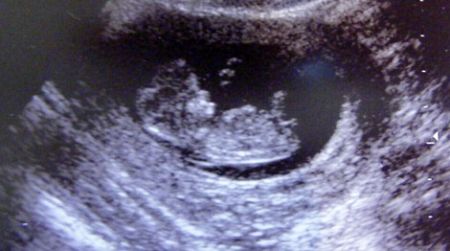WOMAN PRESCRIBED ABORTION PILLS HAD LIFE-THREATENING ECTOPIC PREGNANCY
A woman who had taken prescribed abortion pills later presented with a life-threatening ruptured ectopic pregnancy in Maternity Hospital Limerick – and experts said the practice of not providing an ultrasound in medical abortion could lead to death where it was not understood that ectopic pregnancy was involved.
In response, Doctors for Life said that that previous warnings on the absence of a scan prior to prescribing abortion pills must now be heeded as a matter of urgency.
The case was written up in the March edition of Journal of the Irish Medical Organisation where the authors – who work in Obstetrics and Gynaecology – said that it provided insights into “a serious and life-threatening event ie maternal collapse due to a ruptured EP [ectopic pregnancy] after a termination of pregnancy”.
The paper was entitled: Medical Termination of Pregnancy – an Emerging Risk for Maternal Mortality.
They also noted that offering an ultrasound to check against ectopic pregnancy was “not routine” when a woman sought abortion pills – which are usually provided by a GP and which can now be prescribed without an in-person consultation when the law requiring a physical examination changed after the Covid lockdown, when the requirement was suspended.
Failure to carry out an ultrasound, the medical experts said, may result in masking symptoms and signs of ectopic pregnancy in patients having an abortion, and could lead to death due to misdiagnosis and the overlap of symptoms of ectopic pregnancy and abortion.
An ectopic pregnancy occurs when the unborn baby develops outside the womb – usually in the fallopian tube – rather than in the woman’s womb. If it goes undiagnosed, then as the baby grows, the tube can burst and, unless emergency medical treatment is availed of, can cause life-threatening bleeding.
If a scan is not performed before prescribing abortion pills, an ectopic pregnancy can be missed, and the bleeding and pain caused by the rupturing tube can be mistaken for the effect of the abortion pill, a midwife told Gript.
In the Limerick case, the woman was brought in by ambulance suffering severe pain and in hypovolemic shock – an emergency condition in which severe blood or other fluid loss makes the heart unable to pump enough blood to the body, which can cause many organs to stop working.
She was also hemodynamically unstable – suffering abnormal blood pressure – and required immediate resuscitation before having the tube removed. She has taken abortion pills under care of her GP two weeks previously.
The doctors said that ectopic pregnancy was a “significant cause” of deaths in pregnancy, and that healthcare providers “ideally” should be able to diagnose and exclude ectopic pregnancy before prescribing abortion pills.
They urged that women who presented for abortion should be checked against a ‘Red Flag risk factors’ list to see if ultrasound was required to rule out ectopic pregnancy. The Red Flags include previous ectopic pregnancies and IUCD users and previous pelvic abscesses. However, the doctors also noted that their patient in this case had “no risk factors for ectopic pregnancy”.
Nurses and Midwives for Life said that they had warned of such eventualities since 2018, and said that it was “only a matter of time before a woman lost her life because of a failure to prioritise women’s safety over a desire to promote abortion”.
Mary Fitzgibbon, a nurse, midwife, and lecturer in nursing, said the group had also previously warned that prescribing the abortion pill by video conference would be an unsafe and retrograde step, while cautioning that failing to provide an ultrasound meant that ectopic pregnancy could be missed with life-threatening consequences.
“This case underlines that the decision to deny women seeking an abortion an ultrasound was a political, not a medical decision,” she said. “Now, sadly, what was predicted has happened: a women has suffered a life-threatening situation and undergone traumatic emergency treatment and the ectopic pregnancy wasn’t caught as it should have been because the government seems solely focused on acceding to the demands of abortion campaigners – who prioritise access to abortion above ensuring best medical practice”.
“We’ve been raising these safety concerns since 2018 and this case study vindicates our position,” she added. “Every woman seeking an abortion should be scanned, not only to rule out ectopic pregnancy, but also to determine gestational age. Provision of an ultrasound offers assistance to women to make an informed decision in respect of the pregnancy.”
Dr Ronan Cleary of Doctors for Life said the case showed a clear need for an urgent change to policy around abortion provision. “Prior to the referendum we had Simon Harris, who was then Minister for Health, saying that women who ordered abortion pills were undergoing ‘dangerous abortions’, but this case shows that not conducting ultrasounds can also be dangerous,” he said.
“There is an urgent need to act now to change policy around abortion provision,” he said. “Stop the obsessive government focus on making abortion access ‘easier’ and look at the real and present danger in prescribing abortion pills without an ultrasound. In this case, a woman was gravely ill and could have died. The law must change”.
Leading pro-life group, Life Institute, called on Health Minister Stephen Donnelly to “act immediately” to ensure that women did not die because of a failure to provide essential ultrasounds.
“Abortion campaigners sought to deny ultrasounds because they want to hide the humanity of the baby from women, but the Minister can no longer simply bow to these pressure groups when medical experts are warning that women could die,” said spokeswoman Megan Scallan.
Source: GRIPT.ie





